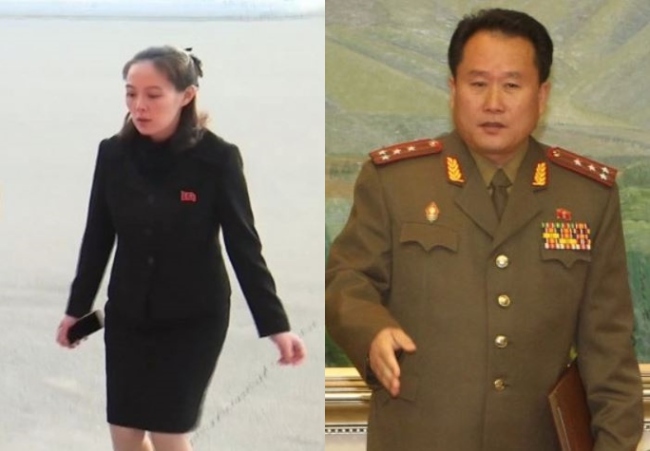S. Korea in consultations with US on planned trips by NK leader's sister
By YonhapPublished : Feb. 7, 2018 - 17:52
South Korea is having consultations with the United States to allow ranking officials, including the younger sister of the North Korean leader, to travel to the South in time for the opening of the upcoming PyeongChang Winter Olympics, a government official said Wednesday.
Earlier, the North informed the South that Kim Yo-jong, the sister of North Korean leader Kim Jong-un, will be included in a high-level delegation making a trip here this week.
Two other officials included are Choe Hwi, the chairman of the National Sports Guidance Committee, and Ri Son-gwon, the head of the North's state agency in charge of inter-Korean affairs.
Kim has been on a US human rights blacklist since January last year. Choe is included in sanctions adopted by the US and the United Nations Security Council.

"We are consulting with the US on their planned trip to South Korea," a source close to the matter told Yonhap News Agency. "It is too early for the US to respond. It is expected to take some time before we can say anything other than that."
He said that given that their trip is scheduled for Friday, when the Winter Olympics will kick off, there is enough time before making decisions.
Another official said that the government is also consulting with the UNSC on that matter.
US sanctions stipulate a ban on travel by the blacklisted people to its territory, but it could be burdensome for the Seoul government to allow for their entry to the South without getting consent from its ally Washington.
Making exemptions on multilayered sanctions have caused controversy and concerns that the global sanctions regime could be undermined in the process.
North Korea's participation in the Winter Olympics came after the two Koreas held a series of meetings last month following years of hiatus caused by the reclusive state's repeated missile and nuclear provocations. (Yonhap)



![[Herald Interview] 'Amid aging population, Korea to invite more young professionals from overseas'](http://res.heraldm.com/phpwas/restmb_idxmake.php?idx=644&simg=/content/image/2024/04/24/20240424050844_0.jpg&u=20240424200058)














![[KH Explains] Korean shipbuilding stocks rally: Real growth or bubble?](http://res.heraldm.com/phpwas/restmb_idxmake.php?idx=652&simg=/content/image/2024/04/25/20240425050656_0.jpg&u=)

![[Today’s K-pop] Kep1er to disband after 2 1/2 years: report](http://res.heraldm.com/phpwas/restmb_idxmake.php?idx=642&simg=/content/image/2024/04/25/20240425050792_0.jpg&u=)